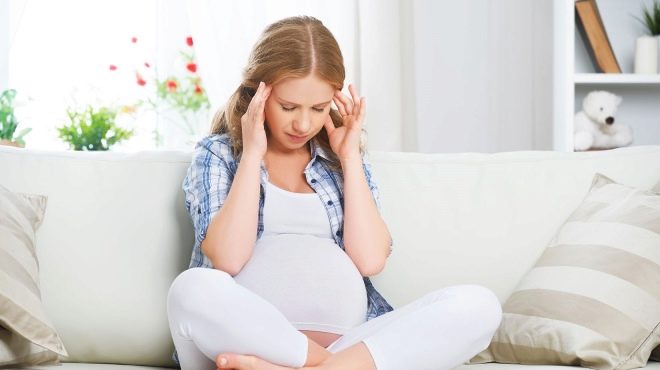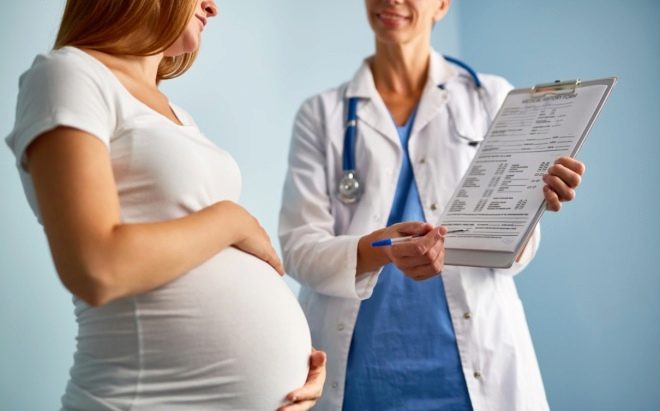From which week of pregnancy does trimester 3 begin, how long does it last and when does it end?
The offensive of the third trimester means for the woman that she has reached the "home stretch" - the birth is very soon. This article will help not to get confused in terms and correctly calculate when this final period begins.
Timing
Third trimester of pregnancy - this is the seventh, eighth and ninth calendar months of gestation period. If we assume this as is customary in obstetric practice, then half of the seventh, eighth, ninth and tenth months fall into the third trimester, since there are exactly 4 weeks in one obstetric month, which cannot be said about the calendar one.
It is usually not possible to establish the exact moment of conception, and therefore it is customary to count the period of gestation from the first day of the last menstrual period. In this way, The third trimester of pregnancy begins on the 27-28th week of pregnancy, and when it ends, no one knows for sure - this is a purely individual question.. The beginning of the period for all is the same, but how long the trimester lasts depends on when the birth will occur.
At every third pregnant woman, according to statistics, the third trimester safely ends with childbirth at 38 weeks. In the period from 39 to 40 weeks, about 45% of women give birth, the rest either give birth to 38 weeks, or go to the maternity hospital at 41, 42 weeks.
Special features
The onset of the final third of the term for carrying a baby for a woman means that the light period is over, and now, for understandable physiological reasons, it will be more difficult to carry a baby every day. The child has reached a large size, he continues to grow and gain weight, the woman herself, too, pretty much gained weight. The uterus at 35-36 weeks reaches its maximum size - it has nowhere else to grow.
It is the large uterus that causes discomfort in the third trimester. It puts pressure on the diaphragm, which leads to shortness of breath, squeezes the woman's stomach, which sometimes leads to unbearable heartburn, a squeezed bowel can not fully function, which causes constipation and aggravation hemorrhoids. The load on the spine leads to pain in the back, the load on the legs leads to pain in the lower extremities, and sometimes to varicose veins. Complements the picture of everyday life of the future mother, the effect of hormones - relaxin leads to softening of the bones and pelvic ligaments, because of which the tailbone and the pubis hurt, accumulated oxytocin enhances training fights, anxiety returns, fears, depression can develop.
The child is fully formed, he is well protected, therefore, almost nothing threatens him in the current term. You can already take many drugs that were previously banned.
The main danger at the current time lies in the possibility of fetal hypoxia, because the placenta from 34 weeks reaches the maximum degree of maturity and begins to age, worse to cope with their responsibilities.
Hurry up events do not need - the last weeks of pregnancy, though difficult for the mother, are necessary for the baby: in his lungs the process of accumulation of surfactant is completed, which is necessary to allow self-breathing, the weight gained by the baby - not only nice looking plump cheeks and butt, but also the possibility effectively regulate the temperature of your body, retain heat after birth.These two signs are extremely important for a child at birth. It is in recent weeks, starting from week 32-34, the little one begins to undergo the most important process of learning adaptability - he has to change his habitat, and his small body activates adaptive abilities in advance.
Difficulties women may face during this period:
- anemia;
- gestational pyelonephritis;
- fetal hypoxia;
- preeclampsia.
Eliminating such complications will help compliance with all recommendations of the doctor.
Useful tips
To make it easier the third trimester will help simple recommendations of specialists.
- Move more, do gymnastics, walk, walk, do feasible housework. Movement is not only life, but also effective preparation of the cervix for childbirth.
- Change your diet - add more vegetables and fruits, reduce the amount of foods high in calcium, red meat is better to replace with fish or chicken breast.
- If the estimated weight of the fetus is large, stop using multivitamins in the third trimester.
- Watch your well-being.. In case of signs of discharge of the mucous plug, water leaks, intimate contacts and bathing are prohibited, and when regular contractions appear or water is drained, you must go to the obstetric institution.
- Diseases such as flu or chickenpox at this time are dangerous not so much for the baby as for his mother, since they burden her already difficult condition. because should avoid contact with diseasedand also to pay enough attention to the prevention of infectious diseases.
- It is important every day to carefully count the movements.. If they suddenly become few, or the baby, on the contrary, behaves too actively, you need to consult a doctor - both of which may be signs of hypoxia, that is, oxygen starvation of the baby.
- Practice proper breathing and exercises to ease birth pain. This can be learned from courses for pregnant women, acting on a free basis in every antenatal clinic.
Do not try to stimulate childbirth on your own or speed up their offensive at home.













